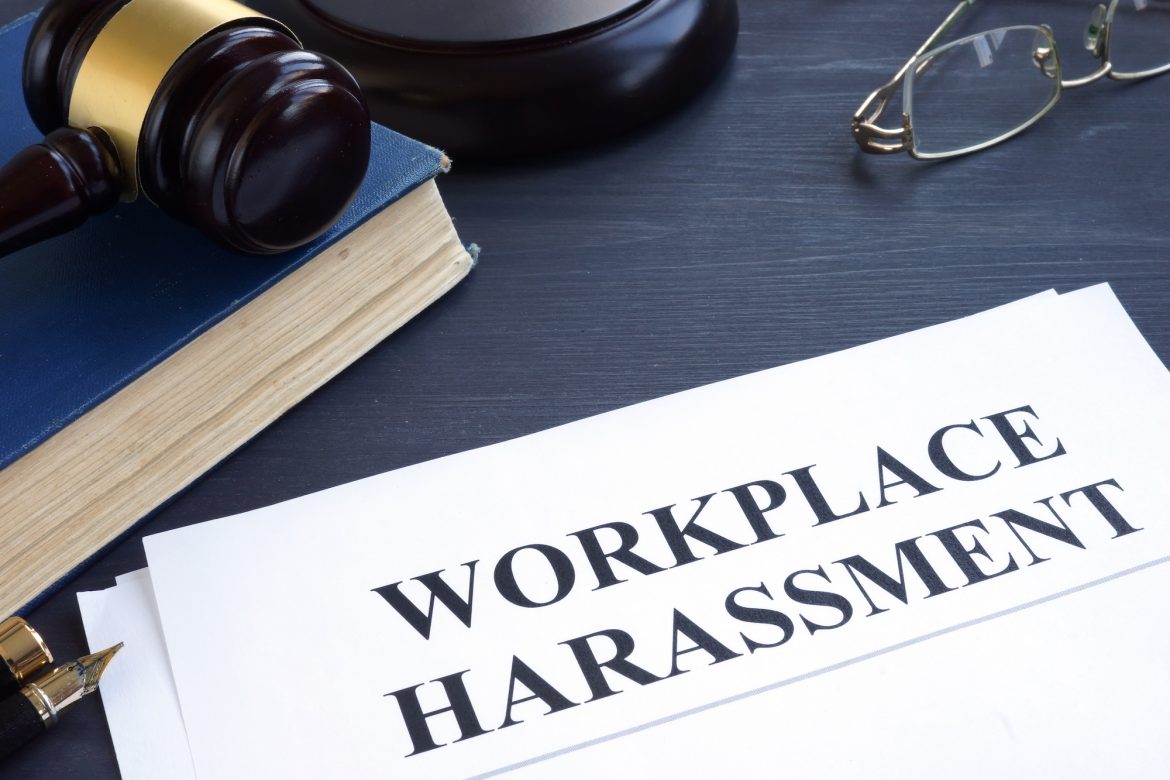Workplace harassment is a serious issue that can have detrimental effects on both employees and employers. It refers to any unwelcome behavior, whether verbal, physical, or visual, that creates an intimidating, hostile, or offensive work environment. This type of behavior can come from anyone in the workplace superiors, colleagues, or even clients, and is not limited to just one form.
Workplace harassment can take many forms such as sexual harassment, racial discrimination, bullying, and retaliation. These behaviors can include unwanted advances or comments of a sexual nature; derogatory remarks based on race, religion, or ethnicity; spreading rumors; physically threatening actions; or retaliating against someone who has reported misconduct.
It is important for companies to understand the different forms of harassment and how they can manifest in the workplace. By having a clear understanding of what constitutes harassment and how it may present itself in the workplace will help employers recognize when it occurs and take swift action to address it.
Understanding Legal Consequences of Workplace Harassment
Workplace harassment is a serious issue that can have significant legal consequences for both employees and employers. In order to fully understand the impact of workplace harassment, it is important to first have a clear understanding of what constitutes as harassment in the workplace.
Harassment can be defined as any form of unwelcome conduct or behavior that creates an intimidating, hostile, or offensive work environment for an individual. This includes but is not limited to verbal, physical, and non-verbal actions such as derogatory comments, inappropriate jokes, unwanted physical contact, or gestures.
It is important for companies to recognize that harassment does not just occur between individuals of opposite genders. It can also occur between individuals of the same gender and may even involve groups of people targeting a particular person.
One major legal consequence of workplace harassment is potential liability for the employer. Under various federal and state laws such as Title VII of the Civil Rights Act and the Americans with Disabilities Act (ADA), employers are responsible for preventing and addressing workplace harassment. This means that if an employee experiences harassment at work and brings it to their employer’s attention, the employer has a legal obligation to take action in order to prevent further incidents from occurring.
If an employer fails to take appropriate action or ignores reports of workplace harassment, they may be held liable for creating a hostile work environment. This can result in costly lawsuits and damage to the company’s reputation.
Importance of Having a Workplace Harassment Attorney
Having a workplace harassment attorney is crucial for any company, regardless of its size or industry. In today’s society, workplace harassment has become a prevalent issue that not only affects the employees involved but also has legal consequences for the employer.
Here are some reasons why having a workplace harassment attorney is important:
Understanding and Complying with Laws:
Workplace harassment laws vary from state to state and can be complex to navigate. A knowledgeable and experienced attorney will ensure that your company understands all relevant laws related to workplace harassment, such as Title VII of the Civil Rights Act, the Americans with Disabilities Act (ADA), and the Age Discrimination in Employment Act (ADEA). They will also help you comply with these laws by providing guidance on appropriate policies and procedures to prevent harassment.
Protection Against Legal Claims:
Without proper prevention measures in place, your company may face legal claims from employees who have experienced harassment in the workplace. A skilled attorney can help protect your company against such claims by conducting thorough investigations into any reported incidents of harassment and taking necessary steps to address them promptly.
Mitigating Liability:
In cases where an employee files a lawsuit against your company for alleged acts of workplace harassment, having an attorney can significantly reduce liability risks. An experienced attorney will work closely with you to gather evidence, prepare strong defense strategies, and represent your company’s best interests in court.
How Can a Workplace Harassment Attorney Help Your Company?
Workplace harassment is a serious issue that can have severe legal consequences for companies. In recent years, there has been a significant increase in the number of workplace harassment lawsuits filed against employers. These cases not only result in financial losses for the company but also damage its reputation and employee morale. In order to avoid such situations, it is crucial for companies to seek the help of a workplace harassment attorney.
A workplace harassment attorney specializes in handling cases related to discrimination, sexual harassment, and other forms of workplace misconduct. They are well-versed in state and federal laws that protect employees from such behavior and can provide valuable guidance to employers on how to comply with these laws.
One way a workplace harassment attorney can help your company is by conducting an audit of your current policies and procedures related to preventing and addressing workplace harassment. They will review your company’s code of conduct, training materials, reporting procedures, and complaint resolution process. This audit will identify any gaps or weaknesses in your policies that could leave your company vulnerable to potential lawsuits.
Based on their findings, the attorney can advise you on implementing effective preventative measures such as regular training sessions for employees at all levels of the organization. This not only ensures that everyone understands what constitutes as harassment but also creates a culture where such behavior is not tolerated.
Steps to Take When Facing a Workplace Harassment Lawsuit
Facing a workplace harassment lawsuit can be a daunting and overwhelming experience for both employers and employees. It is important to handle the situation carefully and take appropriate steps to protect your company’s reputation and avoid legal consequences. Here are some key steps to follow if you find yourself facing a workplace harassment lawsuit:
Seek Legal Representation: The first step in handling a workplace harassment lawsuit is to seek legal representation from an experienced workplace harassment attorney. An attorney will help guide you through the process, inform you of your rights, and provide expert advice on how to proceed.
Conduct an Internal Investigation: It is crucial to conduct a thorough internal investigation when facing a workplace harassment lawsuit. This involves gathering evidence, interviewing witnesses, and documenting all findings. A comprehensive investigation will help determine the validity of the claims and identify any potential liability for the company.
Preserve Evidence: In addition to conducting an internal investigation, it is important to preserve any relevant evidence related to the case. This includes emails, text messages, voicemails, social media posts, or any other documentation that may be used as evidence in court.
Communicate Effectively: Communication is key when dealing with a workplace harassment lawsuit. It is important for employers to communicate clearly and effectively with their legal counsel throughout the entire process. Additionally, proper communication with all involved parties can help mitigate further conflict or misunderstandings.
Tips for Preventing Workplace Harassment and Protecting Your Company
Workplace harassment is a serious issue that can significantly impact the culture and success of a company. Not only does it harm employees, but it also puts the company at risk for legal consequences. As an employer, it is your responsibility to create a safe and respectful work environment for all employees. To help prevent workplace harassment and protect your company from potential legal repercussions, here are some tips to keep in mind:
Establish clear policies: The first step in preventing workplace harassment is to establish clear policies against it. These policies should be clearly outlined in employee handbooks and training materials, so all employees are aware of what constitutes harassment and what actions will be taken if it occurs.
Train employees on prevention: Providing regular training on recognizing and preventing workplace harassment can go a long way in creating a positive work culture. Employees should be educated on identifying different forms of harassment, such as verbal, physical, or sexual, and how to report any incidents they witness or experience.
Encourage an open-door policy: Make sure all employees feel comfortable reporting any incidents of harassment without fear of retaliation. Consider having multiple avenues for reporting, such as designated HR personnel or anonymous hotlines.
Lead by example: As an employer or manager, it’s essential to lead by example when it comes to respecting boundaries and promoting a safe work environment. Set expectations for appropriate behavior and make sure you follow them yourself.


